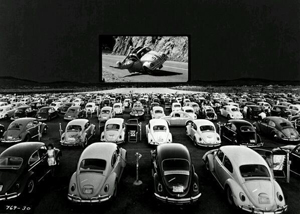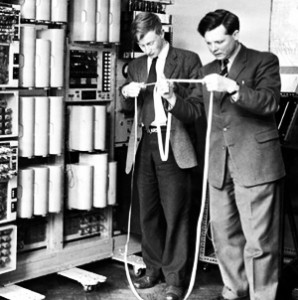Note: If you’d like to share this post, here’s a shortened link: http://bit.ly/SustainCrtvLife
Two weeks ago at The San Francisco Film Society we launched A2E (Artist To Entrepreneur), a specific line of programming designed to provide filmmakers with the necessary entrepreneurial skills and best practices needed to have a sustainable creative life. We launched with A2E OnRamp, a workshop to allow filmmakers to budget, schedule, and predict possible revenues for their film throughout the direct distribution process.
Before we rolled up our sleeves to start the practical, I warmed up the crowd with a series of short lectures focusing on what all filmmakers should know about the film biz, the current culture, and recommended best practices for themselves. Last week I shared with you what we discussed about culture in general. Prior to that, I shared with you what I felt we had to recognize and accept, at least for now, about the film business.
Today, I offer you my recommendations on best practices in times like these if you want to have a hope of a sustainable creative life as a filmmaker. Don’t worry if it looks like there is more than you can currently achieve. It is a process and you are not alone. It gets better. We can build it better together.
- Focus on developing Entrepreneurial Skills as well as the creative. The corporate distributors don’t need your work to the extent that they will ever value it as much as you will. If you want your work to last, engage, and be profitable, it is up to you to be prepared to use it to ignite all opportunities. Armed with a good story and good storytelling skills, you should be able to profit if you know how to take responsibility for your creation.
 As I alluded to in a previous post, Transmedia is in the midst of a debate about its definition and who has the authority to determine that definition. It is one of those discussions I think best observed from the sidelines, but then I have no financial or artistic stake in that debate. However, I do think they’re important terms to understand.
As I alluded to in a previous post, Transmedia is in the midst of a debate about its definition and who has the authority to determine that definition. It is one of those discussions I think best observed from the sidelines, but then I have no financial or artistic stake in that debate. However, I do think they’re important terms to understand. 

 There’s a certain watercooler betting-pool mentality that accompanies the box office results of movies, as though their success were completely encapsulated in a single opening weekend’s results. This despite the fact that everybody knows Hollywood accounting is particularly slippery, that budgets never reveal the accompanying marketing costs of films, that foreign market revenue is increasingly important to the success of many films, and that ancillarly sales can be a primary rather than secondary revenue stream. Nonetheless, we seem to equate box office numbers with whether a film worked, whether it’s worth anyone’s time, and whether it’s going to ruin somebody’s career or save it.
There’s a certain watercooler betting-pool mentality that accompanies the box office results of movies, as though their success were completely encapsulated in a single opening weekend’s results. This despite the fact that everybody knows Hollywood accounting is particularly slippery, that budgets never reveal the accompanying marketing costs of films, that foreign market revenue is increasingly important to the success of many films, and that ancillarly sales can be a primary rather than secondary revenue stream. Nonetheless, we seem to equate box office numbers with whether a film worked, whether it’s worth anyone’s time, and whether it’s going to ruin somebody’s career or save it.  In Adventures in the Screentrade, William Goldman famously opined that “nobody knows anything” in Hollywood, a curious concession for a man with such a marked record of success. The truth, though, is that Hollywood has always known something — its very business centered not just on creating hits but also on predicting future ones.
In Adventures in the Screentrade, William Goldman famously opined that “nobody knows anything” in Hollywood, a curious concession for a man with such a marked record of success. The truth, though, is that Hollywood has always known something — its very business centered not just on creating hits but also on predicting future ones.